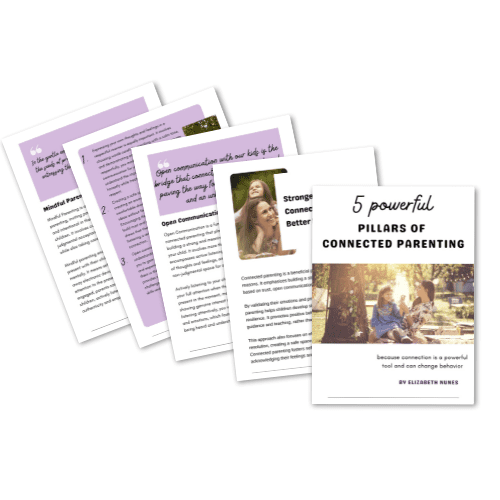6 Ways Routines Help Build up Trust With Kids
Parenting: the only job where you clock in and never really clock out. It’s a gig filled with unpredictable twists, turns, and the occasional mystery stain.
But amidst the whirlwind of child-rearing, creating a bastion of predictability can be the golden ticket to your child’s trust fund—the emotional kind, not the one with dollar signs.
This post may contain affiliate links. Full privacy policy and disclosure here.

Routine: The Not-So-Secret Ingredient
Remember those days when the biggest decision was choosing between the red or blue crayon?
Ah, simplicity. In a child’s world, where such choices can seem monumentally important, establishing routine provides a comforting predictability.
It’s like creating a hit TV show schedule for your child—except the episodes are ‘Breakfast Time,’ ‘Play Time,’ and the ever-popular ‘Bedtime.’
Morning routines shouldn’t resemble a military drill, but a bit of structure can prevent your home from turning into a scene from “Wild Kids: The Untamed Edition.” And when it comes to bedtime, a predictable wind-down routine can be the difference between sweet dreams and hosting an all-night rave in the crib.
Parenting is as much about the big moments as it is about the daily routines. For more direct guidance, ‘Parenting with Love and Logic‘ by Foster Cline and Jim Fay, and ‘The No-Cry Sleep Solution‘ by Elizabeth Pantley provide practical tips tailored to parenting.
These reads offer strategies that help instill discipline, consistency, and comfort in your children’s lives, making them worthwhile additions to your parenting library.
Each book brings a unique perspective to managing the complexities of daily routines, ensuring that there’s something for every type of parent.
Discipline: Consistency for the Win
Ah, discipline. Not every child’s favorite word (unless they think it’s a new brand of ice cream).
But discipline consistency is less about being stern and more about being stable. When rules and consequences are as predictable as an old sitcom rerun, kids know where they stand.
No one’s asking you to be the family dictator, but an unwavering stance on certain rules keeps the home kingdom peaceful.
Emotional Security for Toddlers
Toddlers can go from zero to meltdown faster than you can say “Did you eat my lipstick?”
But when they’re buffeted by the gales of their own emotions, emotional security is the harbor.
Consistent emotional responses help toddlers learn to weather their internal storms. So, even when you feel like you’re negotiating with a tiny, irrational dictator, remember that your calm response is building their emotional fortress.

The Impact of Stable Home Environment
A stable home environment might sound like a fantasy when you find your phone in the fridge and the milk in the cupboard.
But kids in a structured environment are like plants in just the right amount of sunlight—they just do better. They’re less likely to be surprised by the unexpected and more likely to bloom into confident, resilient beings.
Staying organized is a central piece of the predictable parenting puzzle, and having the right tools can make all the difference. Here is a great home management workbook to get you started.

Free Resource For Parents
Take your parenting journey to the next level with our comprehensive ebook on Connected Parenting.
Conclusion: The Big Picture of Predictable Parenting
Creating trust through predictable parenting isn’t about crafting a rigid life that could make a drill sergeant weep with joy. It’s about setting up a reliable framework within which your family can dance to the rhythm of life’s surprises.
With consistent parenting techniques, reliable child-rearing practices, and daily routines, you’re not just building trust; you’re crafting a childhood filled with the warmth of security and the joy of knowing what comes next—well, at least some of the time.

